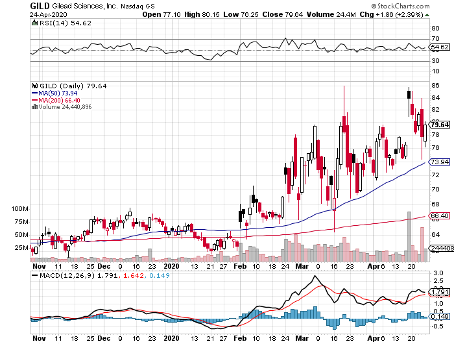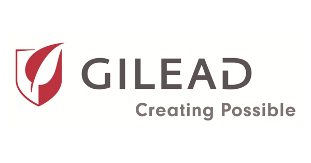Gilead Sciences Goes Ballistic on Remdesivir Trial
Gilead Sciences (GILD) is aggressively pushing to bring the coronavirus disease (COVID-19) to its proverbial knees before this year ends.
The ongoing coronavirus disease (COVID-19) pandemic has brought about substantial disruptions to the world economy, not to mention the devastating losses it caused families watching their loved ones succumb to this deadly virus.
Apart from Gilead, other biotech giants like Pfizer (PFE) and Johnson & Johnson (JNJ) are also hard at work looking for a COVID-19 cure.
Luckily, reports indicate that they may finally see a light at the end of the tunnel as one experimental treatment showed promising efficacy for fighting the health crisis.
Based on the contextual analysis of the leaked information on the clinical trials conducted by Gilead, the biotech company’s decision to bet on Remdesivir as a probable COVID-19 treatment could pay off soon.
At this point, Remdesivir is still under investigation in several Phase 3 clinical trials. These involve more than 2,400 participants scattered in 152 clinical sites.
One of these locations is the University of Chicago Medical Center, where 125 patients who tested positive for COVID-19 are treated every day with infusions of Remdesivir. Out of these individuals, only two deaths were reported with the majority already discharged.
Based on this subgroup alone, the fatality rate among the tested subjects is 1.6%.
Although Remesivir’s results still need further validation particularly in terms of adding a placebo arm in the clinical tests, the initial findings are already quite impressive. For context, data from John Hopkins University revealed that the fatality rate in the entire United States is roughly 4.69%.
Apart from that, another key detail points to the high probability of Remdesivir’s efficacy against COVID-19.
Among the 125 patients who underwent the treatment, 113 of them experienced severe symptoms.
As explained by the World Health Organization, the vast majority of those classified as severe cases involve the elderly and the immunocompromised. In one study, the infection death rate of individuals in this category fall somewhere between 1.93% up to 7.8%
Reassessing Remdesivir’s results from this perspective, we finally understand the excitement surrounding the drug’s efficacy despite the lack of a placebo trial.
In terms of questions on Remdesivir’s economic potential, we can take a look at past respiratory outbreaks like the H1N1 in 2009 and the 1918 Spanish flu for guidance.
Despite “flattening the curve,” at the time, both diseases had resurgences that reached second and third waves after the initial outbreaks were contained.
Combined, the H1N1 and the Spanish flu infected roughly 24% to 33% of the entire global population prior to subsiding for good.
Hence, high demand for Remdesivir will be expected even after the world manages to contain the first COVID-19 outbreak.
What does this mean for Gilead investors?
Remdesivir results are expected to come back positive by the end of April. With the FDA’s Coronavirus Treatment Acceleration Program, the drug is estimated to gain approval in a few months' time.
If successful, Remdesivir is projected to rake in more than $1 billion in sales throughout the coronavirus outbreak period. This estimate is based on the sheer number of people infected and are potentially at risk.
The estimated sales figure is also based on the assumption that Gilead can produce enough Remdesivir supply to treat up to 500,000 patients and that the drug will cost roughly $2,000 for a single-course treatment.
Adding Remdesivir in its lineup, Gilead has adjusted its 2020 revenue guidance to surpass $22 billion with sales growing by more than 4%, thanks to this potential COVID-19 drug alone.
However, Gilead offers more than a promising COVID-19 treatment.
The biotech giant prides itself of a strong lineup, showing off a particular dominance as the market leader for HIV treatments.
Its top HIV drug Biktarvy saw a whopping 300% increase in its sales last year, reaching $4.7 billion in 2019 alone -- and it still hasn’t reached its peak.
Analysts noted that Biktarvy has more room to grow in the next years, with the HIV drug anticipated to continue serving as Gilead’s significant growth driver until 2033.
Another HIV market leader is Descovy, which is set to be the preferred choice among 40% to 45% of patients by the end of 2020.
Despite these promising developments, Gilead stock is still pretty cheap.
To date, this biotechnology company is trading at 13.2 times forward earnings with a measly PEG ratio of 0.3.
At this price -- and considering the company’s strong portfolio and pipeline candidates -- investors on the lookout for biotech exposure but are worried about the consequences of the COVID-19 pandemic should definitely add Gilead into their core holdings.



